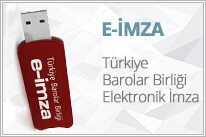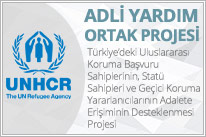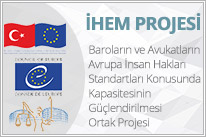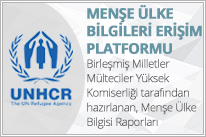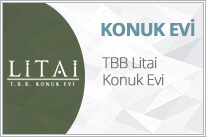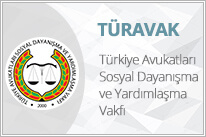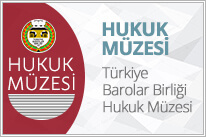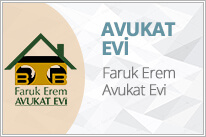UNDP Toplantısı
UNDP/Birleşmiş Milletler Kalkınma Programı tarafından 20 Eylül 2011 tarihinde İzmir’de Düzenlenen Ve Türkiye, Moldava, Kırgızistan, Tacikistan, Gürcistan, Rusya, Kazakistan, Ermenistan, Azerbaycan, Özbekistan barolarının katıldığı “Orta Asya ve Kafkaslarda Hukuk Hizmetleri Bağlamında Baroların Kapasiteleri” konulu toplantıya Türkiye Barolar Birliği Başkanı Av.V.Ahsen Coşar ile Hukuk Danışmanı Av.Özgecan Yanlı katıldılar.
Birlik Başkanı Coşar'ın İngilizce olarak yaptığı açış konuşması ile katıldığı toplantıda, Türkiye Barolar Birliği hukuk danışmanı Av.Özgecan Yanlı "Legal Aid Services in Türkiye/Türkiye'deki Adli Yardım Hizmetleri" konulu İngilizce bir tebliğ sundu.
Birlik Başkanı Coşar'ın İngilizce Olarak Yaptığı Açış Konuşması Metni:
Dear Guests,
Dear Colleagues,
At first, I want to say everybody good morning and well come, and then I would like to express both Union of Turkish Bar Associations’ and my personal good wishes to all participants.
I am really grateful to the officers of UNDP for giving me the opportunity to address this roundtable on “Capacities of the Bar Associations in Caucasus and Central Asia in the Provision of Legal Services.” I would like to take this opportunity to say that I am very honor, happy and pleasure here with you.
We are jurists. Whether we are from Türkiye or Moldavia, Kyrgyzstan, Tajikistan, Georgia, Russia, Kazakhstan, Armenia, Azerbaijan or Uzbekistan, there is no difference. Our languages are the same, our thoughts, our hearts, our senses and sensibilities are all the same.
We, the jurists know that understanding of the nature of the legal order and legal reasoning is of significant cultural value itself. Understanding of law is essential to an understanding of the values of our society and of the international community.
The main aim of law is to realize justice. In this context, justice has always been one of the ideals of the humans. Formally, justice is a way of thinking and acting which may be more or less equal meaning with morality and honesty. Thus, Roman jurist, Justianous put it that; ‘Justice is to live honestly, not to harm others and give everyone his due.’
If so, to realize justice both in our country and in the world is our duty.
In order to realize full justice, recognition of the right to an effective remedy and to a fair trial is not enough. To ensure an effective access to justice is necessary. Legal aid is one of the important means of the access to justice. So, legal aid should be available to those who lack sufficient resources. Of course, to provide, to ensure, to contribute, to manage, to administrate the institution of legal aid is the duty of the Bar Associations, and of the lawyers.
On the other hand, morals is important both for man and society. Any man, any society cannot live without morals. Moral is also important for law. In this context, morals affect not only the content of law, but its administration, too. Law depends on morals. Morals, too, depends on law. Further, law may even help reinforce morals and morals may help reinforce law.
Thus, Chief Justice Holmes once put it that, ‘the law is the witness and external deposit of our moral life. Its history is the history of the moral development of the race.’
If so, we, the jurists should call our governments to act morally in all their national and international relations.
Dear Colleagues,
Aristotle described man as a zoon politikon, political animal, but for most religious and philosophical traditions it is man’s nature as a social animal, who easily makes connections with family, friends, associations and clubs, that is paramount, and it is in this sphere that people find their true nature. (1)
The Old Testament warns that ‘it is not good for man to be alone’. Indeed, humans become depressed, aggressor, sick, unhappy and confused if they are denied human contact for too long. It is also known that civic organizations teach humans how to live, share, cooperate and how to set their own goals with a moral integrity. (2)
Using Aristotle’s description, it is easy to claim that, a society is also a political or social animal, who makes connections with other societies, that is paramount, and it is in this sphere that societies and the humans of the societies find their true nature and develop their culture.
Warn of the Old Testament is also valid and useful for the societies. Like that, it is not good for societies to be alone. Societies become depressed, aggressor, sick, unhappy and confused if they denied contact with other societies.
Shortly, we need each other. This is the reason of this meeting.
Dear Colleagues,
Union of Turkish Bar Associations believes that to help both national and international society and to play an active role in the betterment of national and international society is not only the duties of states and of state bodies. States, state bodies, public professional organizations, nonprofit and nongovernmental organizations, corporations, and institutions should play in the betterment of both national and international society and put more energy to create a better future for everyone.
We can do this by raising issues of equity and inclusion, pushing international society to have social responsibility in deeper, lifting up the policy context; defending the supremacy of law, democracy, human rights, and peace; changing the frame through which stories are told and focusing on solutions. Opportunities are there, and only by seizing them will social justice and social responsibility be achieved. (3)
I hope this meeting will be very useful and fruitful for all of us.
Thank you very much for your attention.
V.Ahsen Coşar
Attorney at Law
President of Union of Turkish Bar Associations
- Geoff Mulgan - CONNEXITY: Responsibility, Freedom, Business and Power in the New Century – Vinatage-1998
- Geoff Mulgan - “ “
- David Maurrasse - A Future for Everyone - New York - Routledge 2004
Birlik Başkanı Coşar'ın İngilizce Olarak Yaptığı Açış Konuşması Metninin Türkçe Tercümesi:
Değerli Konuklar,
Değerli Meslektaşlarım,
Öncelikle, herkese günaydın ve hoş geldiniz der, tüm katılımcılara Türkiye Barolar Birliği'nin ve şahsımın en iyi dileklerimi sunarım.
Birleşmiş Milletler Kalkınma Programı çalışanlarına, bana “Orta Asya Ve Kafkaslarda Hukuk Hizmetleri Bağlamında Baroların Kapasiteleri” konulu toplantıya katılma imkanı verdikleri için müteşekkirim. Burada sizlerle birlikte olmaktan dolayı da onurlu, mutlu ve hoşnut olduğumu söylemek isterim.
Bizler hukukçuyuz. Türkiye, Moldova, Kırgızistan, Tacikistan, Gürcistan, Rusya, Kazakistan, Ermenistan, Azerbaycan ya da Özbekistan’dan geliyor olmamızın hiçbir farkı yok. Dillerimiz, düşüncelerimiz, kalplerimiz, duygularımız ve anlayışlarımız hep aynı.
Bizler hukukçu olarak, hukuk düzeninin doğasını ve hukukun mantığını anlamanın önemli bir kültürel değer olduğunu biliyoruz. Kendi toplumumuzun ve uluslararası toplumun değerini anlamak, hukuku anlamayı gerektirir.
Hukukun temel amacı adaleti gerçekleştirmektir. Bu kapsamda adalet her zaman insanlığın ideallerinden biri olmuştur. Biçimsel anlamda adalet, az ya da çok ahlak ve dürüstlükle eş anlamlı olan bir düşünce ve eylem biçimidir. Nitekim Romalı hukukçu Justianous'a göre adalet; “Dürüst yaşamak, başkalarına zarar vermemek ve herkese hak olanı vermektir”.
Öyleyse adaleti hem kendi ülkemizde, hem de dünyada gerçekleştirmek görevimizdir.
Adaleti tam anlamıyla gerçekleştirmek için, etkili başvuru hakkını ve adil yargılanma hakkını tanımak yeterli değildir. Aynı zamanda adalete etkin bir erişimi de sağlamak gerekmektedir. Adli yardım, adalete erişimi sağlayan önemli araçlardan birisidir. Bu nedenle, adli yardım yeteri kadar kaynağı olmayanlar için yararlanılabilir olmalıdır. Adli yardım kurumunu temin etmek, düzenlemek, idare etmek, bu kuruma katkıda bulunmak kuşkusuz Baroların ve avukatların görevidir.
Diğer taraftan, ahlak hem kişi, hem de toplum için önemlidir. Ahlak olmadan ne kişiler, ne de toplum yaşayabilir. Ahlak, hukuk için de önemlidir. Bu bağlamda, ahlak yalnız hukukun içeriğini değil, yönetimini de etkilemektedir. Hukuk ahlaka ve ahlak da hukuka bağlıdır. Dahası hukuk ahlakın kuvvetlenmesine, ahlak da hukukun kuvvetlenmesine yardımcı olmaktadır.
Nitekim Başyargıç Holmes'un ifadesiyle “ Hukuk, ahlaki yaşamımızın tanığı ve dışsal güvencesidir. Onun tarihi, aynı zamanda ırkın ahlaki gelişiminin tarihidir.”
Öyleyse, bizler hukukçu olarak hükümetlerimizi, ulusal ve uluslararası ilişkilerinde ahlaki davranmaya davet etmeliyiz.
Değerli Meslektaşlarım,
Aristo insanı zoon politikon, yani siyasal hayvan olarak tanımlamıştır. Ancak çoğu dinsel ve filozofik geleneğe göre, insanın doğası kutsal bir değerdir ve insanın gerçek doğasını bulabilmesi için aileyle, arkadaşlarla, dernekler ve kulüplerle kolay iletişim kurabilen bir sosyal hayvan olmasını gerektirir. (1)
Eski Ahit “yalnız olmanın insan için iyi olmadığı” uyarısını yapmaktadır. Gerçekten, insanlar diğer insanlarla iletişimde uzun süre engellenirse, depresif, saldırgan, hasta ve mutsuz olurlar. Sivil organizasyonların, insanlara nasıl yaşayacaklarını, nasıl paylaşacaklarını, nasıl yardımlaşacaklarını ve ahlaki doğruluk çerçevesinde amaçlarına nasıl ulaşabileceklerini öğrettiği bilinen bir husustur. (2)
Aristo’nun tanımından hareketle, toplumun da diğer toplumlarla ilişki kuran politik veya sosyal hayvan olduğu kolayca iddia etmek mümkündür ki, bu kutsal bir değerdir ve toplum ve toplumdaki insanlar bu çerçevede kendi gerçekliklerini bulurlar ve kendi kültürlerini geliştirirler.
Eski Ahit'in uyarısı, toplumlar için de geçerli ve yararlıdır. Buna göre, yalnız olmak toplumlar için de iyi değildir. Diğer toplumlarla iletişimde bulunmayı reddeden toplumlar da depresif, saldırgan, hasta ve mutsuz olurlar.
Kısaca, birbirimize ihtiyacımız var. Bu toplantının amacı da budur.
Değerli Meslektaşlarım,
Türkiye Barolar Birliği hem ulusal, hem de uluslararası topluma yardım etmenin ve ulusal ve uluslararası toplumu iyileştirmede aktif rol oynamanın sadece devlet ve devlet organlarının görevi olmadığına inanmaktadır. Devletler, devlet organları, meslek kuruluşları, kar amacı gütmeyen kuruluşlar ve hükümet dışı kuruluşlar, şirketler ve kurumlar da, hem ulusal, hem de uluslararası toplumun iyileştirilmesinde rol oynamalı ve herkes için daha iyi bir gelecek yaratmak için daha fazla enerji ortaya koymalıdırlar.
Bunu, eşitliği artırarak ve hatta uluslararası toplumu daha fazla sorumluluk almaya itecek politikaları artırarak, hukukun üstünlüğünü, demokrasiyi, insan haklarını ve barışı savunarak, penceremizi deneyimlere çevirmek ve çözümlere odaklanmak suretiyle başarabiliriz. Fırsatlar orada bizi bekliyor, ancak onları yakalayarak sosyal adalette ve sosyal sorumlulukta başarılı olabiliriz. (3)
Beni dinlediğiniz için teşekkür ederim.
Av. V. Ahsen Coşar
Türkiye Barolar Birliği Başkanı
- Geoff Mulgan – CONNEXITY: Responsibility, Freedom, Business and Power in the New Century
- Geoff Mulgan – “
- David Maurrasse – A Future for Everyone – New York- Routledge 2004
Türkiye Barolar Birliği Hukuk Danışmanı Av.Özgecan Yanlı'nın İngilizce Olarak Sunduğu Tebliğ:
Ladies and Gentleman,
I am grateful for the honour of speaking to you about the Turkish legal aid system.
I would like to start my speech by introducing the practice of Turkish legal aid services and the legislation on legal aid. According to Art. 36 of Turkish Constitution “Everyone has the right of litigation either as plaintiff or defendant and the right to a fair trial before the courts through lawful means and procedures.” Legal aid has the function of overcoming the obstacles on the right to legal remedies and the function of providing the equity in exercising this right in accordance with the right to a fair trial. In this respect, legal aid services help persons who do not have an opportunity to pay attorneyship fees and other adjudicatory expenses. It is a significant point to provide the knowledge and experiences of a lawyer to persons who cannot afford the costs of legal aid services.
Conceptually, “legal aid” includes the services of mandatory defender in the criminal procedure law. However there is a separate regulation for assignment of lawyers as a mandatory defender according to criminal procedure code. Unfortunately we could not be able to speak on this subject as we have limited duration.
Relevant Legislation
Legislation concerning legal aid is Attorneyship Law, Code of Civil Procedure and The Legal Aid Regulation of the Union of Bar Associations of Turkey. Between the articles 176-181 (one hundred and seventy six one hundred and eighty one) of Attorneyship Law the scope of legal aid, in what way legal aid is requested and the lawyer is assigned, the establishment of the legal aid offices and revenues and expenses of them are regulated. It is stated that matters that are not considered in the Code will be addressed in the regulation to be published by Union of Turkish Bar Associations.
The role of UTBA is essential at the point of publishing the related regulation, determining the rules of legal aid, in connection with standardizing the rules of legal aid and enforcing the regulation by Board of Directors. In addition to this UTBA also plays an active role in allocation of the fund to the Bars.
Legal aid services are also regulated between the articles 465-472 of Code of Civil Procedure . According to these provisions if a person cannot afford the court expenses, he may demand legal aid from the court where the action is or will be brought. If the court sustains the legal aid, temporary relief from court expenses will be provided and the lawyer will be appointed. In this case the attorney fee is paid after the court decision. However this kind of an assignment is seen rarely in practice.
According to the art. 177 of Attorneyship Law and art.4 of The Legal Aid Regulation of the Union of Bar Associations of Turkey, legal aid service is rendered by a “legal aid office” established at the headquarters of bar associations by the board of directors of the bar association and created from among its lawyers. The board of directors of the bar association may also designate an attorney as “the representative of the legal aid office” in jurisdictional areas outside the location of the bar association where more than five attorneys are available. There are also legal aid officers in these offices. In addition to this, each Bar regulates its own “Legal Aid Directive”.
Legal Aid Services and General Principles of Assignment
A request for legal aid will be made to the legal aid office or its representatives where the service will be done. In order to benefit from legal aid services, a person must be needy and there should be a personal conviction as to his eligibility in his motion. Whether the person is eligible and needy or not, will be determined by researching the necessary information and documents. In this process public and private institutions help the legal aid offices and representatives.
Since the economic and the income level, the life conditions in the provinces are taken into consideration, the documents that will be demanded from the applicant may differ for each Bar.
The application is researched by the legal aid offices or the representatives and when it is determined that the applicant is met the conditions, a lawyer is assigned. In case of the rejection of the motion of legal aid service, the applicant has a right to appeal to the President of the Bar Association. The decision made by the President due to the appeal is definite.
Having assigned in legal aid is depended on demand of the lawyers. The principle of equity is based on the assignment. The statement of lawyer regarding the field of law, to which they want to be assigned for, is also taken into consideration.
Only one lawyer may be assigned for the same case and the lawyer is binded upon the subject matter of the assignment. The lawyer is obliged to follow the job to the end as it is stated in Attorneyship Law and Legal Aid Regulation.
In 2011 so far, there have been 25095 requests for legal aid and 20285 of them have been accepted.
Attorney Fee
The assigned lawyer is entitled to have attorney fee when he submits the documents that prove the service has been started. There used to be different applications as to attorney fee in the Bars before the amendment in the legal aid regulation in 2008 when a standard was set. Accordingly, Board of Directors of the Bar Associations may decide to pay the attorney fee up to 3 times of the fee determined in the minimum attorneyship fee tariff. Board of Directors may decide fee by considering the nature of the case, the duration of the proceedings and the effort of the lawyer only in exceptional conditions. However it is worth to mention that the legal aid attorney fees in Turkey are under the standards.
Supervision
- Legal Aid Offices;
The legal aid office and the representatives execute the legal aid services under the responsibility and supervision of the board of directors of the bar association. Board of Director may also supervise the work of legal aid offices and representatives any time. Financial audit is done by Board of controller of the bar association.
- Lawyers;
Legal aid offices and the representatives always pursue the stages regarding the performance of the lawyer in legal aid services. The lawyer is obliged to submit the requested information and documents. In addition to that, at the end of the service the lawyer has to deliver the related report and the documents indicating that the service is completed.
The complains of the applicant regarding the service of the lawyer will be assessed by Board of Directors.
- Bars;
Bars prepare legal aid reports at the end of the each year and submit to the UTBA. The payments within the scope of legal aid are made in every 3 months as 4 installments by UTBA to the Bars. Bars submit a report in every 3 months to UTBA after the first payment is made. The rest of the payment is made after the determination whether the report is in compliance with the regulation or not.
Main Issues As To Legal Aid Services and Solution Offers
Issues
- The fund provided to the Bar associations for legal aid services is inadequate. The shortage of the fund leads difficulties even in supplying the needs of legal aid offices and the officers.
- The assigned lawyers within the scope of legal aid are having difficulties in gathering the proofs like documents and in communicating with the clients.
- The citizens are mostly uninformed of the opportunities provided for legal aid. For this reason they may have difficulty in benefiting from the service.
- In cases where the court expenses are also provided by the Bar Associations, it is usually impossible to meet the high expenses with the limited funds.
- The attorney fee paid for the service does not meet the efforts of the lawyers.
- There are also delays in the encashment of attorney fees.
Solution Offers
- The quality of the legal aid service is directly proportional with the fund allocated for the legal aid services. For this reason the legal aid fund should be extended.
- The lawyers should be subject to continual vocational retrainings where they can have professional experience. Therefore Union of Turkish Bar Associations and the Bar Associations organize vocational retrainings regularly.
- Financial privileges such as tax immunity or tax reduction may be granted to the lawyers providing legal aid services.
- Union of Turkish Bar Associations and Bar Associations should continue the studies on awareness of the public by publishing brochures about legal aid and producing new projects.
- The systems that are more economical for the parties and create permanent solutions such as mediation and negotiation may be inserted into legal aid mechanism. It can be seen as a solution to UTBA and the Bar Associations play an active role, the lawyers provide alternative dispute resolutions, UTBA organize seminars on mediation and the lawyers are educated regularly in mediation or negotiation.
- The legal aid officers should be subject to education regularly.
- The opportunity to benefit from legal aid should be provided to the ones that need further legal aid such as refugees, asylum seekers. Therefore the economic opportunities should be increased.
- When we look at the structure of society in the world and especially in Turkey the importance of legal aid services for women and children can be seen apparently. For this reason, the studies on awareness of public about legal aid services must proceed at full speed. By this means, studies should be done with local authorities and Turkish Social Service and Children Protection Institute which contacts directly with the undereducated, socially weak and needy persons in the society.
- Studies for standardization of the documents that are submitted during application must continue.
- Lawyers should be encouraged to participate in legal aid beyond.
In conclusion, I would like to mention of the studies we have done to improve legal aid services.
Union of Turkish Bar Associations organize periodical meetings where lawyers can share their knowledge, experiences and difficulties they have faced while providing legal aid services. The consequences of the meetings are also shared with the Bar Associations.
Union of Turkish Bar Associations has taken an active role in the meetings which was financed from European Commission in 2009 regarding legal aid services and organized training programmes in 8 provinces with the involvement of the Bar Associations. Vocational trainings, conferences and meetings on the subject “legal aid” are being done constantly. Within this framework, the draft concerning amendment in the legal aid regulation has been sent to the Bar Associations and the opinions of the Bar Associations have been received. In addition to this, a meeting had been held with the representatives of Bar Associations in 18 January 2011 and the opinions as to the draft had been received.
As is seen, legal aid services are executed mainly by Bar Associations. Union of Turkish Bar Asssociations facilitate coordination among the Bar Associations and play an active role in allocation of the fund to the Bar Associations in accordance with the criterias stated in the Regulation.
Bar Associations are executing the services of legal aid within the scope of Attorneyship Law and Legal Aid Regulation I mentioned above. With the common meetings and communions and the studies as to the amendments in Attorneyship Law and Regulation, the quality of legal aid services provided by Bar Associations improves day by day. However the inadequate fund appears to be the most significant issue. Unfortunately, inadequacy of the fund not only leads to restriction on the number of beneficiaries from legal aid services but also causes lawyers not to receive a recompense for their work.
Thank you for listening to me with patience.
Türkiye Barolar Birliği Hukuk Danışmanı Av.Özgecan Yanlı'nın İngilizce Olarak Sunduğu Tebliğin Türkçe Tercümesi:
Değerli Konuklar,
Öncelikle bana, Türkiye’deki adli yardım sistemi hakkında sizleri bilgilendirme fırsatı sunduğunuz için teşekkür etmek isterim.
Konuşmama Türk hukukunda adli yardım sistemi uygulamaları ve adli yardım hakkındaki yasal düzenlemeler hakkında bilgi vererek başlamak istiyorum. T.C. Anayasası’nın 36. Maddesi uyarınca “Herkes meşru vasıta ve yollardan faydalanmak suretiyle yargı mercileri önünde davacı veya davalı olarak iddia ve savunma ile adil yargılanma hakkına sahiptir”. Adli yardım da bireylerin hak arama özgürlüklerinin önündeki engelleri aşmak ve bu özgürlüğün kullanımındaki eşitliği sağlamak üzere adil yargılanma hakkına hizmet eden bir işleve sahiptir. Adli yardım kurumu bu kapsamda, avukatlık ücretini ve yargılama giderlerini karşılama olanağı bulunmayanların avukatlık hizmetlerinden yararlandırılmasıdır. Ekonomik durumu iyi olmayan kişilerin de avukatın bilgi ve birikiminden yararlanması için avukatla temsilinin sağlanması adli yardımın önemli bir noktasıdır.
Kavramsal olarak “adli yardım” ceza yargılaması hukukunda zorunlu müdafii hizmetlerini de kapsar. Ancak ülkemizde ceza muhakemesi kanunu uyarınca avukatların zorunlu müdafii olarak görevlendirilmeleri için ayrı bir düzenleme yapılmıştır. Zamanımız kısıtlı olduğundan bu konuda ayrıntılı açıklamaya girmeyeceğiz.
İlgili Yasal Düzenlemeler
Adli yardıma ilişkin mevzuat 1136 sayılı Avukatlık Kanunu, Hukuk Usulü Muhakemeleri Kanunu ve Türkiye Barolar Birliği Adli Yardım Yönetmeliği’dir. Avukatlık Kanunu’nun 176-181.maddeleri arasında adli yardımın kapsamına, adli yardım isteminin ne şekilde yapılacağına, adli yardım kapsamında avukatın görevlendirilmesine, Adli Yardım Bürolarının kuruluşu ve gelir ve giderlerine ilişkin düzenlemeler mevcuttur. Kanunda düzenlenmeyen hususların TBB tarafından çıkarılacak yönetmelikle düzenleneceği belirtilmiştir.
Türkiye Barolar Birliği’nin adli yardımdaki rolü, ilgili yönetmeliğin çıkarılarak adli yardıma ilişkin kuralların belirlenmesi ve yine TBB Yönetim Kurulu tarafından bu yönetmeliğin yürütülmesi noktasında önem arz etmektedir. TBB ayrıca, adli yardım ödeneğinin Barolara dağıtımında rol oynamaktadır.
Adli yardım ayrıca, HUMK’nın 465-472.maddeleri arasında düzenlenmiştir. Bu hükümler uyarınca kişi yargılama giderlerini karşılayamaması halinde davanın açılacağı veya devam ettiği mahkemeden adli yardım talebinde bulunabilir. Mahkemenin adli yardımı kabul etmesi halinde yargılama giderleri ve harçlardan geçici muafiyet sağlandığı gibi davanın vekil ile takibinin gerektiği hallerde ücreti sonradan ödenmek üzere vekil tayin edilebilmektedir. Ancak uygulamada bu şekilde görevlendirmeye nadiren rastlanılmaktadır.
Adli yardım hizmeti, Avukatlık Kanunu’nun 177 ve TBB Adli Yardım Yönetmeliği’nin 4.maddesi uyarınca her Baro merkezinde Baro Yönetim Kurulu tarafından belirlenip görevlendirilecek yeterli sayıda avukattan oluşan “Adli yardım büroları” eliyle yürütülmektedir. Baro Yönetim Kurulu Baro merkezi dışında, avukat sayısı beşten fazla olan her yargı çevresinde bir avukatı “adli yardım büro temsilcisi” olarak görevlendirebilmektedir. Bürolarda ayrıca adli yardım personelleri de bulunmaktadır. Bunun dışında her bir Baronun adli yardım hizmetlerini düzenleme altına aldıkları bir “Baro Adli Yardım Çalışma Yönergesi” bulunmaktadır.
Adli Yardım Hizmeti ve Görevlendirme Esasları
Adli yardım talebi, hizmetin görüleceği yer Adli Yardım Büroları veya temsilciliklerine yapılmaktadır. Adli yardım hizmetinin şartı, kişinin yoksul olması ve dava ve taleplerinde haklı olduğuna dair ciddi bir kanaat belirmiş olmasıdır. Kişinin tüm bu koşulları taşıyıp taşımadığı muhtardan alınan fakirlik belgesi gibi gerekli bilgi ve belgelerin incelenmesiyle araştırılmaktadır. Bu aşamada kamu ve özel kurum ve kuruluşlar adli yardım bürosu ve temsilciliklerine yardımcı olurlar.
Başvuru sahibinden istenen evraklar her Baro için farklı olabilmektedir. Zira ilin durumu, ekonomik seviyesi, bölgedeki gelir düzeyi, bölgedeki yaşam koşulları gibi hususlar göz önünde tutulmaktadır.
Başvuru, adli yardım büroları veya temsilcilikleri tarafından incelenmekte ve adli yardım koşulu gerçekleşmiş ise karar alınarak avukat görevlendirmesi yapılmaktadır. Talebin reddi halinde kişinin Baro Başkanına itiraz hakkı bulunmaktadır. Baro başkanının itiraz üzerine vereceği karar kesindir.
Adli yardımda görev almak, avukatların isteklerine bağlıdır. Avukatların adli yardımda görevlendirmesinde eşitlik ilkesi esas alınmaktadır. Görevlendirmede ayrıca, avukatların görev isteminde bulundukları alanlara ilişkin beyanları dikkate alınmaktadır.
Aynı işe tek avukat görevlendirilebilmekte ve avukat atandığı görev konusuyla bağlı olmaktadır. Avukatlık Kanunu gereği görevlendirilen avukat, işi sonuna kadar takip etmekle yükümlüdür.
Vekalet Ücreti
Görevli avukatın görevine başladığına ilişkin belgeleri Adli yardım bürosuna sunmasıyla ücrete hak kazanmaktadır. Ücret konusunda Barolar arası farklı uygulamalar söz konusuydu. Bu husus 2008 yılında yapılan yönetmelik değişikliği ile standarda bağlanmıştır. Buna göre, Baro Yönetim Kurulu istisnai hallerde ve davanın niteliği, yargılamanın uzaması ve avukatın emeği gibi kritileri de göz önünde tutarak asgari ücret tarifesindeki ücretin üç katına kadar vekalet ücreti ödenmesine karar verebilecektir. Ancak ülkemizde adli yardım avukatlık ücretinin, standart ücretin altında olduğunu belirtmekte de fayda vardır.
Denetim
- Adli yardım büroları bakımından;
Adli yardım bürosu ve temsilcileri, işlerini adli yardımdan sorumlu Baro Yönetim Kurulu üyesinin sorumluluğunda ve denetiminde yürütür. Baro yönetim kurulu da adli yardım büroları ve temsilciliklerinin çalışmalarını her zaman denetleyebilir. Mali açıdan denetim ise baro denetçileri tarafından yapılmaktadır.
- Görevlendirilen avukatlar bakımından;
Adli yardım büroları ve temsilcilikleri görevlendirilen avukatın hizmeti yerine getirmesi ile ilgili aşamaları izler. Avukat, kendisinden istenen bilgi ve belgeleri vermek zorundadır. Avukatın ayrıca, hizmetin sonunda konu ile ilgili raporunu ve hizmetin sona erdiğine ilişkin belgeleri adli yardım bürosuna teslim zorunluluğu bulunmaktadır.
Başvuru sahibinin ayrıca görevlendirme ile ilgili şikayetleri de Baro Yönetim Kurulu’na iletilmek suretiyle incelenmektedir.
- Barolar bakımından;
Barolar her yıl sonunda adli yardım raporu düzenleyerek TBB’ye gönderirler. Adli yardım kapsamında TBB tarafından Barolara yapılan ödeme 3 ayda bir olmak üzere 4 taksit halinde yapılmaktadır ve Barolar ilk ödeme yapıldıktan sonra her üç ayda bir rapor düzenleyerek TBB’ye göndermektedirler. Kalan ödemeler, bu raporların Yönetmeliğe uygunluğu tespit edildikten sonra yapılmaktadır.
Adli Yardım Hizmetlerindeki Temel Sorunlar ve Çözüm Önerileri
Temel Sorunlar:
- Barolara adli yardım hizmeti için sağlanan ödenek yetersizdir. Ödenek azlığı adli yardım büro personelinin karşılanmasında dahi güçlüklere yol açmaktadır.
- Adli yardım kapsamında görevlendirilen avukatların belge ve benzeri kanıt toplamasında yaşadığı güçlükler mevcuttur. Ayrıca müvekkili ile iletişim kurma sorunu yaşayabilmektedir.
- Hizmet alan vatandaş sağlanan olanaklar bakımından genellikle bilgisizdir. Bu nedenle adli yardım hizmetine ulaşmada sıkıntı yaşayabilmektedir.
- Adli müzaheret talebinin reddi halinde yargılama giderleri Baro tarafından karşılandığı hallerde, Baronun sınırlı ödenekleri ile yüksek meblağlı söz konusu giderleri karşılayabilmesi çoğu zaman mümkün olamamaktadır.
- Hizmet bedeli olarak ödenen ücret avukatların emeğini karşılamamaktadır.
- Avukatlar tarafından hak edilen ücretlerin tahsilinde gecikmeler söz konusudur.
Çözüm Önerileri:
- Adli yardım hizmetinin kalitesi adli yardım için ayrılan bütçeyle doğru orantılıdır. Bu nedenle nitelikli bir hizmet için adli yardım fonu kapsamının genişletilmesi gerekmektedir.
- Avukatların yapılan hizmetle ilgili mesleki tecrübeye sahip olması için sürekli olarak meslek içi eğitime tabi tutulmaları gerekmektedir. Bu nedenle barolar ve TBB tarafından düzenli olarak meslek içi eğitim çalışmaları düzenlenmektedir.
- Adli yardım hizmeti veren avukatlara mali açıdan (vergi muafiyeti, indirim vs. ) ayrıcalıklar tanınabilir.
- TBB ve barolar adli yardımla ilgili broşürler, kitapçıklar bastırarak ve projeler üreterek halkı bilinçlendirmeye çalışmalarına devam edilmelidir.
- Adli yardım büro personeli de düzenli eğitime tabi tutulmalıdır.
- Taraflar açısından daha ekonomik olan ve kalıcı çözümler üretebilecek sistemlerin (arabuluculuk, uzlaşma gibi) geliştirilerek, adli yardım mekanizması içine yerleştirilebilir. Bu sistemlerde Barolar ve TBB’nin etkin rol oynaması, çözümün avukatlar tarafından sağlanması için gerekli girişimlerin yapılması ve TBB tarafından arabuluculuk seminerlerinin düzenlenmesi, konu ile ilgili avukatların sürekli olarak eğitilmesi konuları da çözüm olarak görülebilir.
- Mülteci, sığınmacı gibi hukuki yardıma daha fazla ihtiyacı olanlara adli yardımdan yararlanma imkanı getirilmesi ve bunun için de ekonomik imkanların artırılması gerekmektedir.
- Dünyadaki ve özellikle Türkiye’deki toplum yapısı karşısında, korunmaya muhtaç kadın ve çocuklar bakımından adli yardım hizmetinin önemi büyüktür. Bu nedenle, toplumu adli yardım hizmeti ile ilgili bilinçlendirme çalışmaları devam etmelidir. Bu suretle özellikle toplumun yoksul, sosyal yönden zayıf ve eğitim düzeyi düşük kitleyle doğrudan iletişim halinde bulunan Başbakanlık SHÇEK ve Yerel yönetimler ile bilinçlendirme konusunda çalışmalar yapılmalıdır.
- Başvuru sahibinin müracaatı sırasında sunduğu belgelerde standart sağlanması gereken belgelerde standardizasyon sağlanması için çalışmaları yapılmalıdır.
- Avukatlar adli yardımda görev alma konusunda daha fazla teşvik edilmelidir.
Son olarak adli yardım hizmetinin geliştirilmesi ile ilgili yaptığımız çalışmalardan söz etmek istiyorum.
TBB, adli yardım hizmeti veren avukatların bilgi, deneyim ve yaşadığı zorlukları paylaştığı toplantıları belli aralıklarla düzenleyerek, toplantı sonuçlarını Barolarla paylaşmaktadır.
2009 yılında Avrupa Komisyonu tarafından finanse edilen adli yardım hizmetlerine ilişkin toplantılarda aktif olarak rol alan TBB, Baroların katılımıyla 8 ilde eğitim programları düzenlemiştir. Konu ile ilgili mesleki eğitimler, konferanslar ve toplantılar sürekli olarak yapılmaktadır. Bu kapsamda olmak üzere adli yardım yönetmeliğinde değişiklik yapılmasına ilişkin taslak, Barolara gönderilmiş ve Baroların görüşleri alınmıştır. Ayrıca 18.01.2011 tarihinde Baro temsilcileri ile toplantı yapılarak yönetmelik değişiklikleri ile ilgili görüşleri alınmıştır.
Görüldüğü gibi, adli yardım hizmeti esasen Barolar tarafından yürütülmektedir. TBB Barolar arasındaki koordinasyonu sağlamakta ve ödeneklerin Yönetmelikte belirtilen kriterler kapsamında Barolara dağıtımında etkin rol oynamaktadır. Barolar adli yardım hizmetlerini az önce bahsetmiş olduğum Avukatlık Kanunu ve Yönetmelik çerçevesinde yürütmektedir. Yeni Avukatlık Yasasına ve Yönetmelik değişikliğine ilişkin çalışmalar, ortak toplantılar ve görüş alışverişleri ile Baroların sunduğu adli yardım hizmetinin kalitesi her geçen gün artmaktadır. Ancak en önemli sorun ödenek yetersizliği olarak karşımıza çıkmaktadır. Ödeneğin yetersiz oluşu hem adli yardım hizmetinden faydalananların sayısında sınırlamaya yol açmakta hem de avukatın emeğinin karşılığını tam olarak alamamasına sebep olmaktadır.
Beni sabırla dinlediğiniz için teşekkür ederim.



